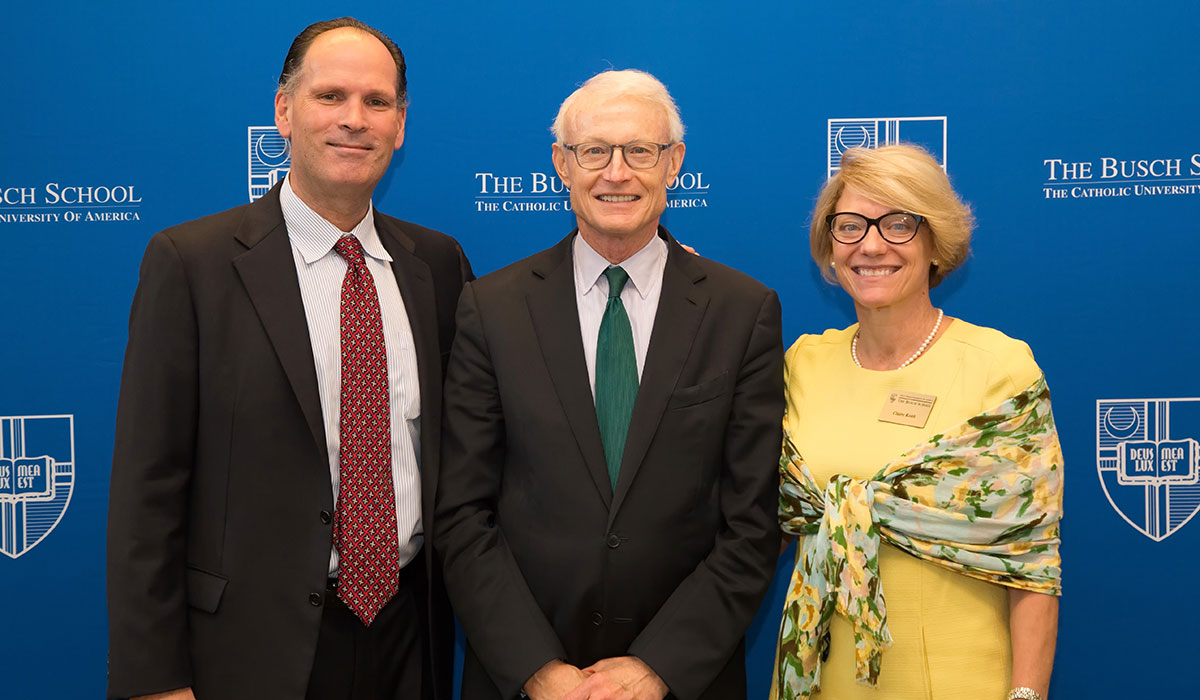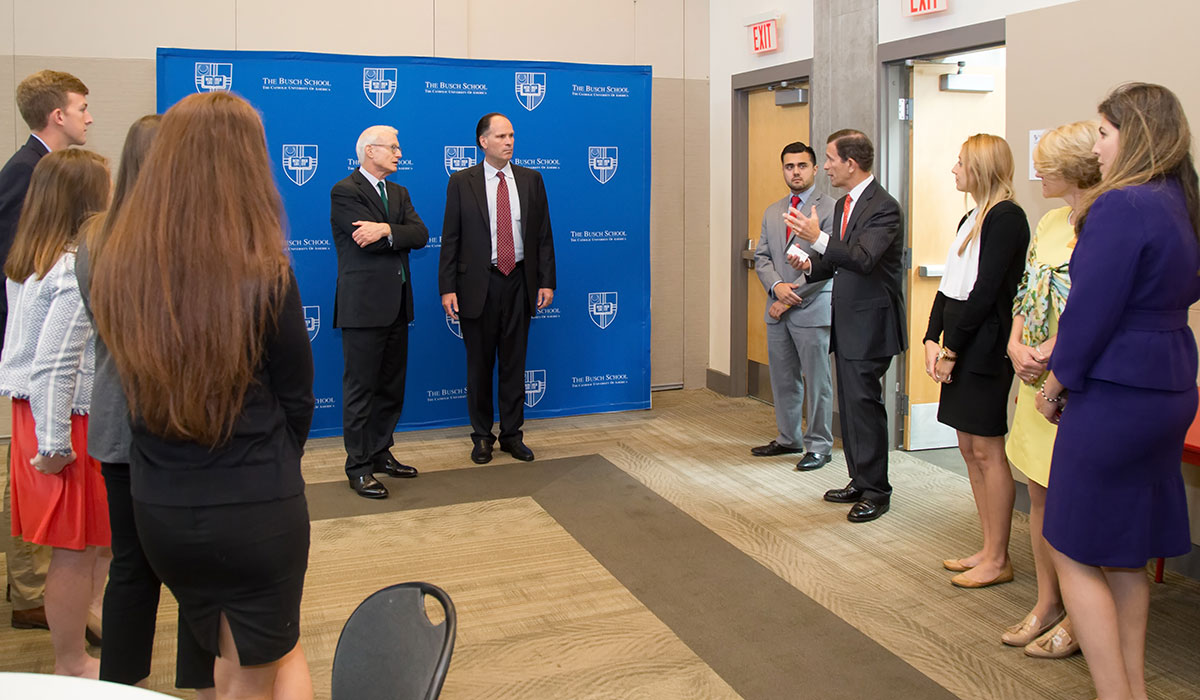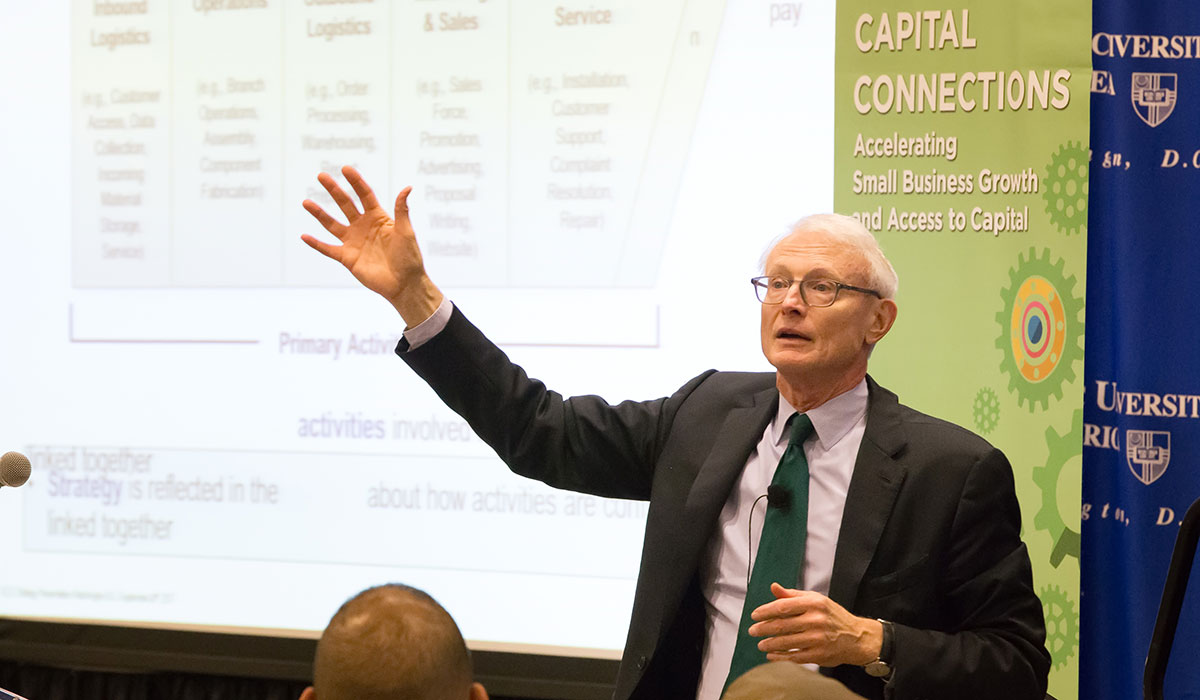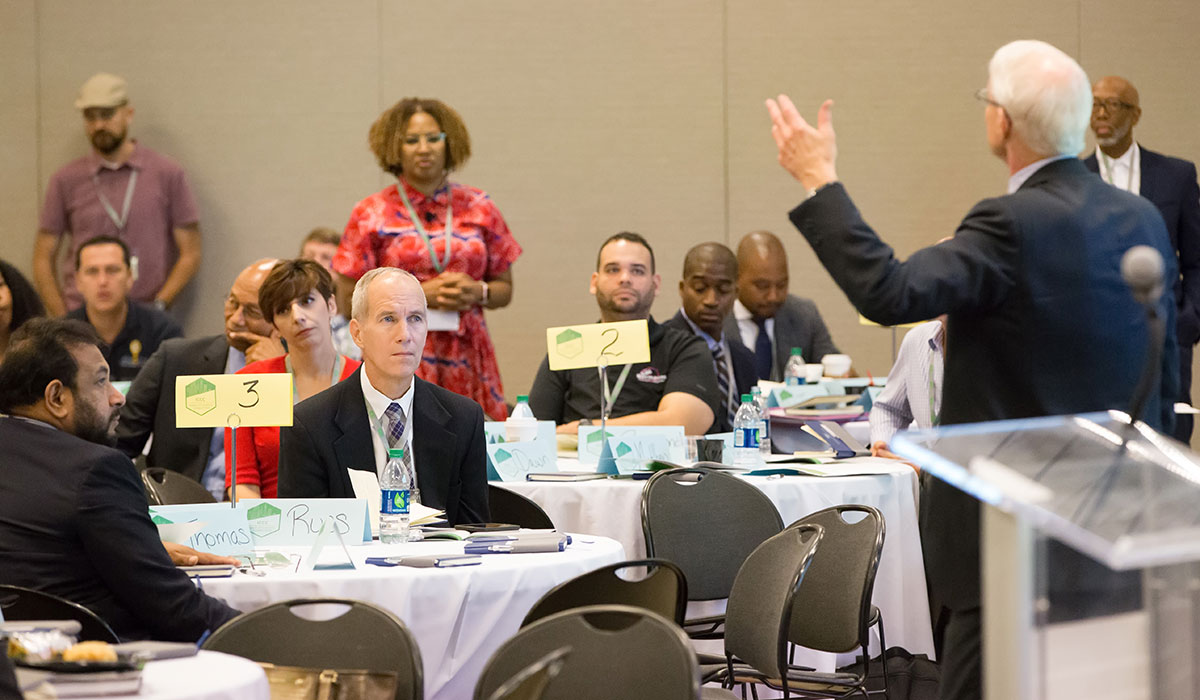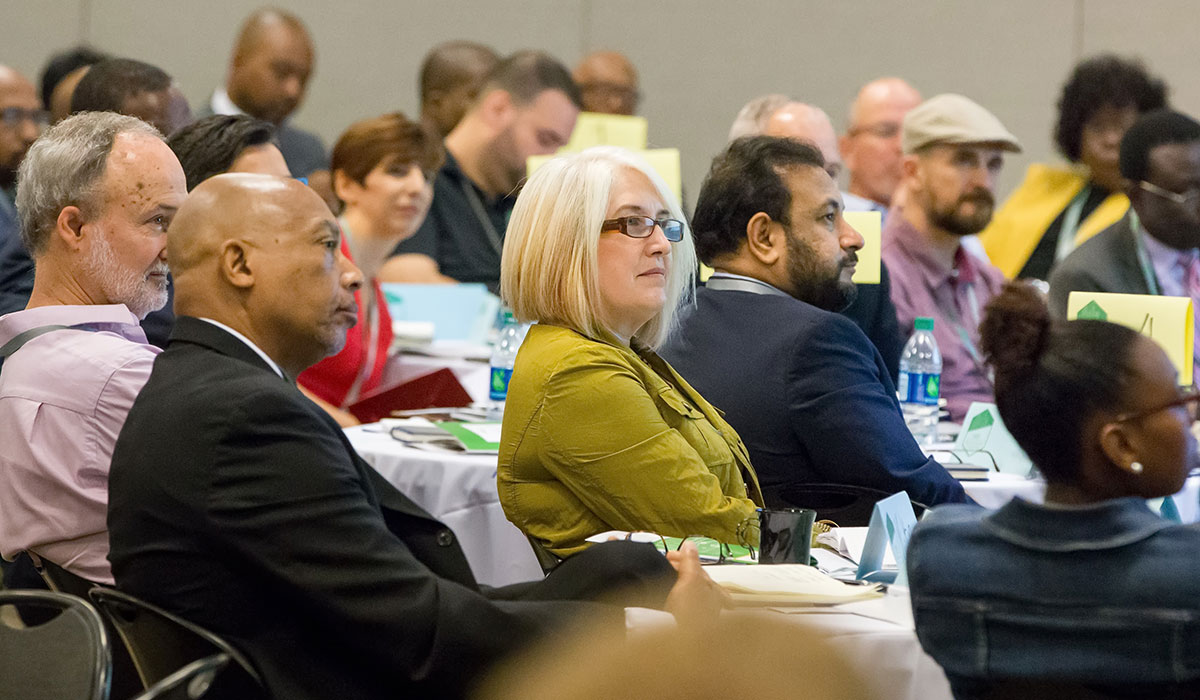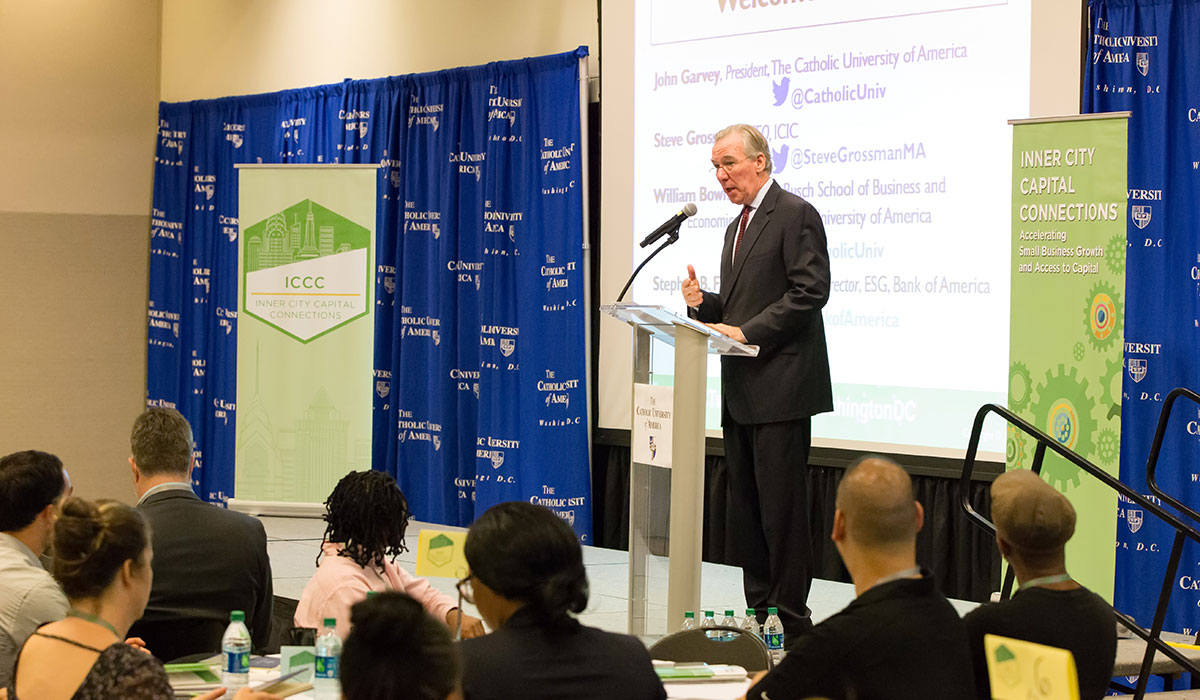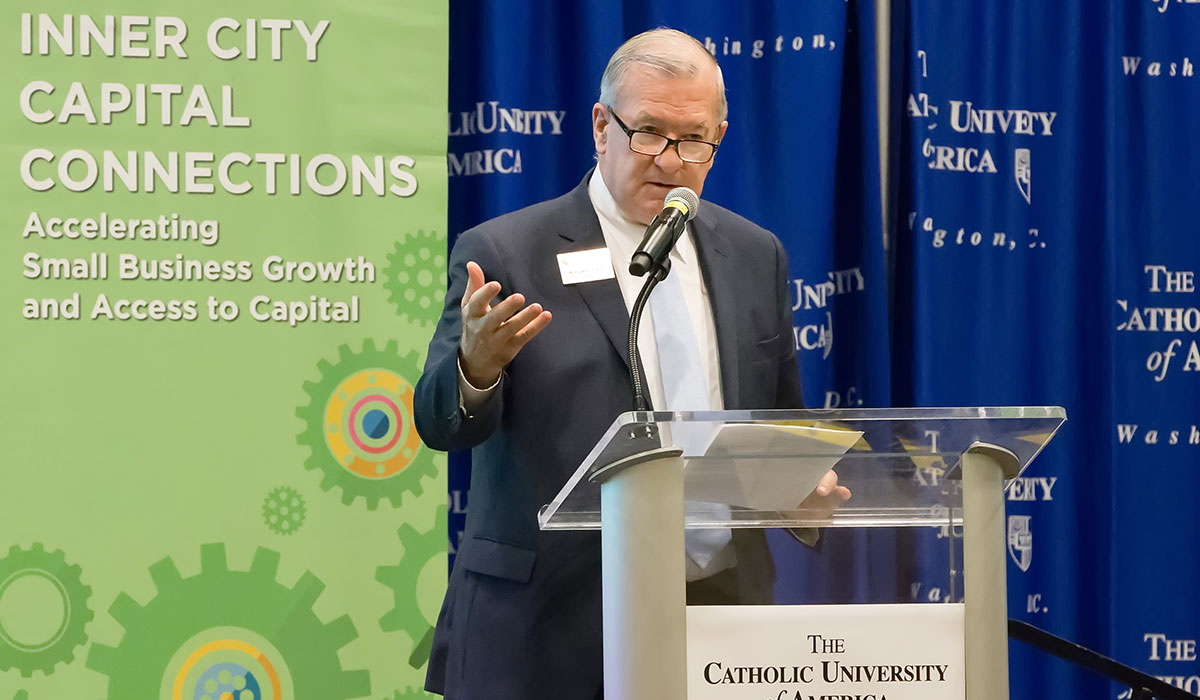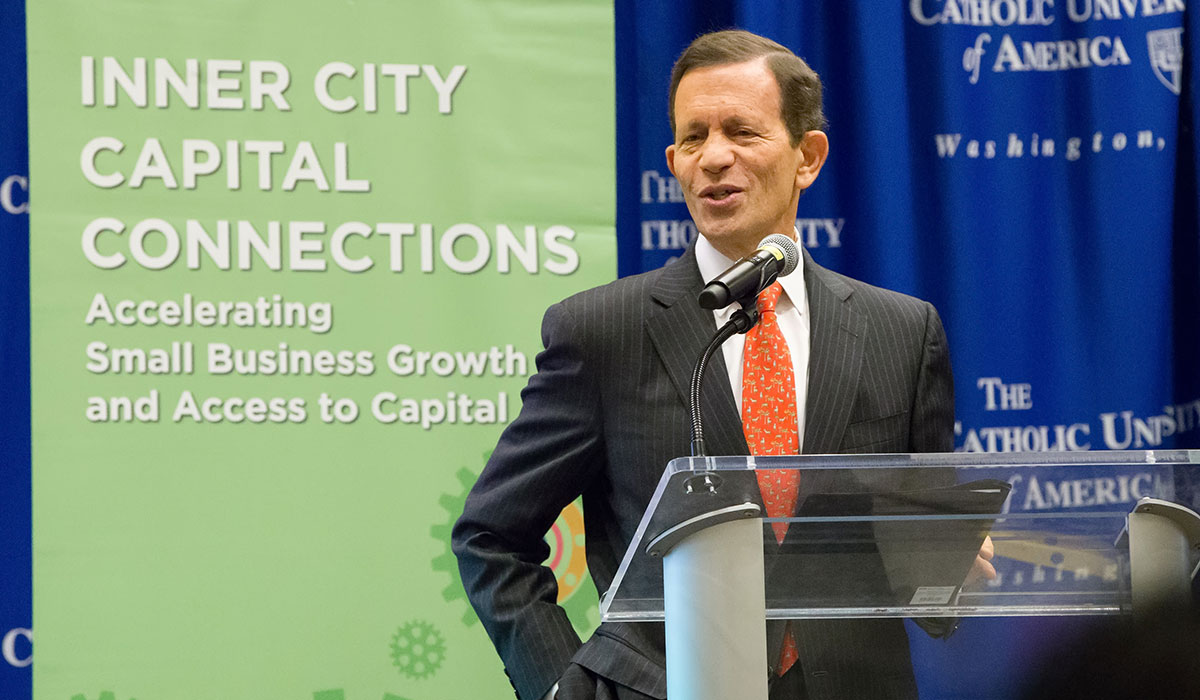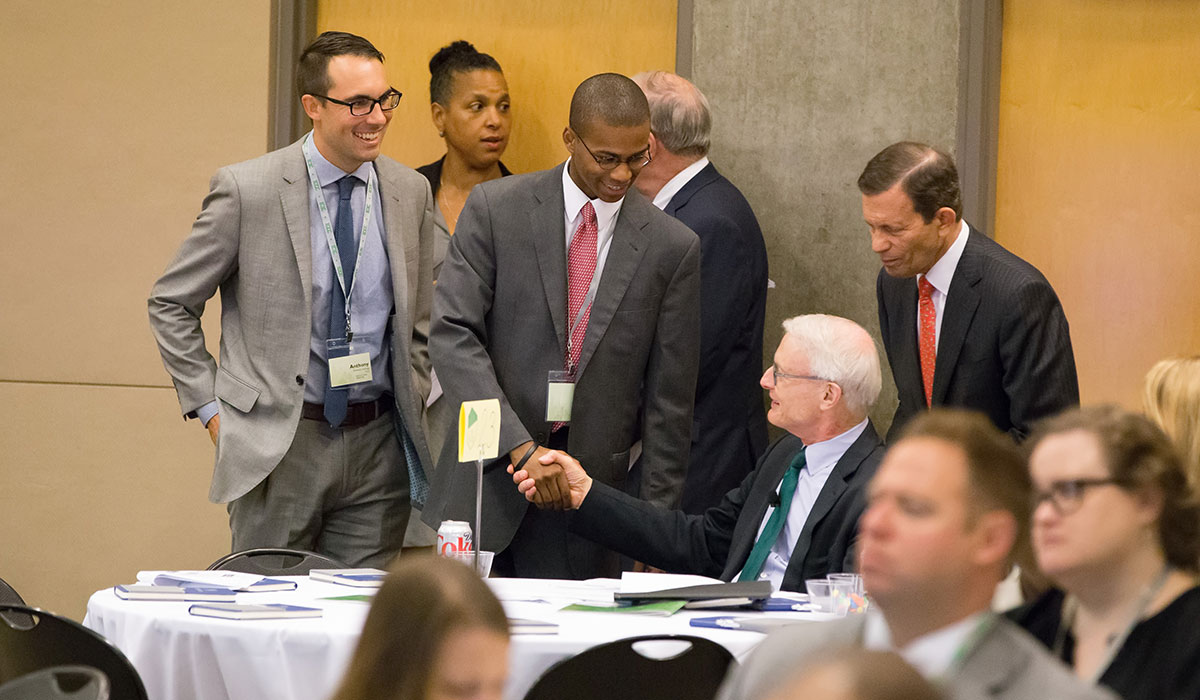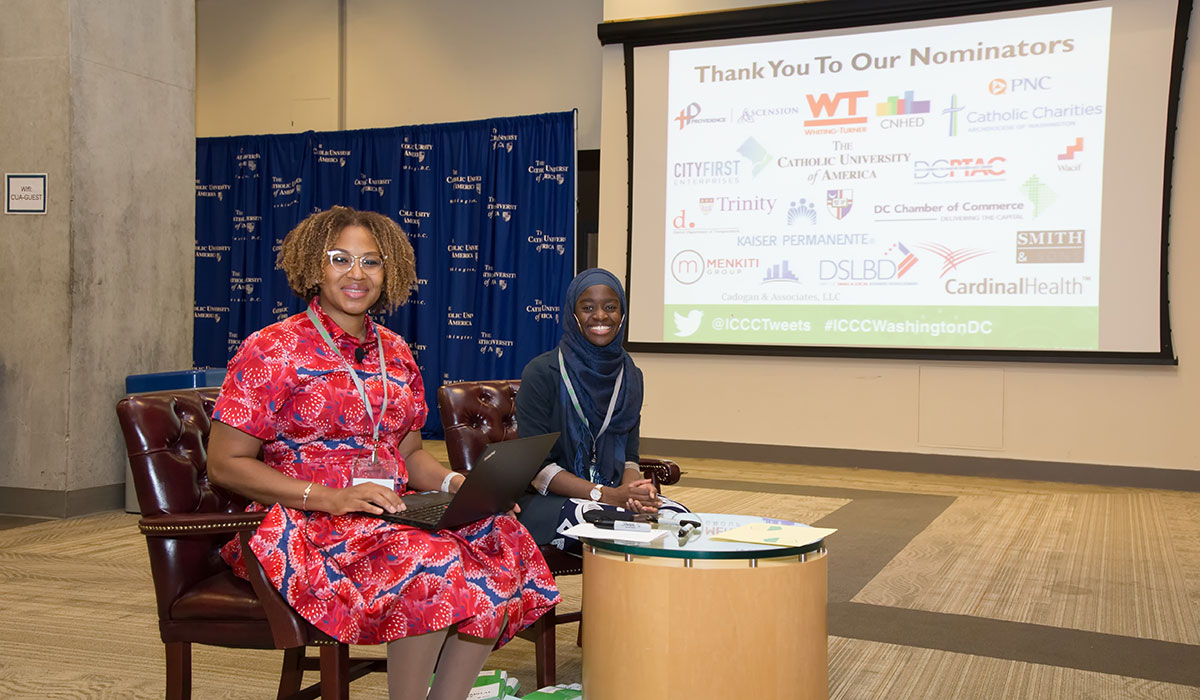
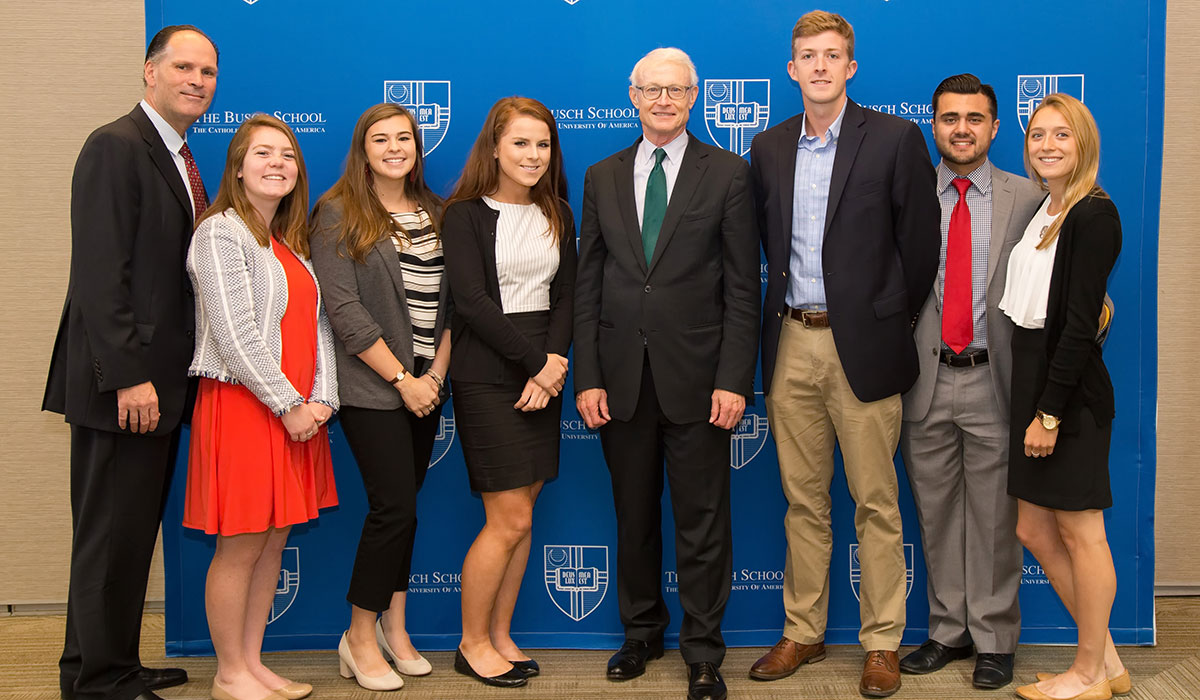
Last week marked the launch of a unique partnership between the Busch School of Business and Economics and the Boston-based Initiative for a Competitive Inner City (ICIC), as the owners of 125 D.C.-based small businesses gathered to network; learn from experts about strategy, leadership, marketing, and finance; and participate in coaching sessions.
It was the beginning of a four-year commitment on the part of Catholic University to ICIC’s flagship program, Inner City Capital Connections (ICCC), whose alumni have created more than 12,000 jobs since its inception in 2005.
The ICCC program represents an opportunity not only for the participating businesses but also for the communities in which they are located, some of them within shouting distance of Catholic University’s campus, in areas hard hit by the Great Recession and years of urban blight. The nation’s capital is the 10th city participating in the program this year, and its initial cohort of small businesses is the largest in the program’s history.
Referencing Pope Francis, who has called business a “noble vocation,” University President John Garvey welcomed the crowd of eager entrepreneurs on Sept. 20, saying, “It is my hope that The Catholic University of America, working with local small businesses, can have an impact in our community while continuing to educate our students to be the kinds of leaders who will do the same. Our partnership in these ventures helps everyone prosper.”
A host of speakers and coaches with years of business expertise shared their experience with the assembled crowd, kicked off by Michael E. Porter, Harvard Business School’s Bishop William Lawrence University Professor who founded ICIC in 1994. Known as the “guru” of business strategy, his session was highly anticipated and did not disappoint, both for wisdom and humor (his digression on the superiority of canned soda over bottled had the crowd rolling).
“Nothing good happens without you being successful,” he exhorted the audience, lamenting that opportunities to create sustainable jobs and prosperity “have not been spread evenly in our country or communities.”
And that is the central premise behind ICIC, which brings together private sector investors and small businesses to create jobs and wealth in inner cities across the country. Through its ICCC program, entrepreneurs have raised more than $1.4 billion in capital for their enterprises. The 125 D.C. participating businesses are from 12 different industries, about 70% minority owned and 40% women owned, with an average of 20 full-time employees and $3 million in annual revenues.
The ICCC program typically lasts three to six months and includes an executive education seminar (the Sept. 20 kickoff on Catholic University’s campus), education webinars, individual coaching, and a culminating national capital matching conference in New York City, where participants can make a funding pitch to capital providers and get feedback on their presentation and business model.
The partnership with the University — the first time ICCC has teamed with a college or business school — will extend into next spring and summer with additional workshops and networking events for the business owners, as well as participation by five senior business students who will take a yearlong seminar in which they spend the fall learning about ways to facilitate small business growth before apprenticing with some of the D.C. participants in the spring.
“Obviously, we’re in the business of educating and shaping the next generation of leaders,” said Robert Keith, co-founder of the Ciocca Center for Principled Entrepreneurship at the business school, and the architect of the expanded ICCC program at Catholic University. “We believe if the program extends into spring and summer, the business owners would get additional value. And if we could integrate students into it, they would get a benefit as well. And, quite honestly, the community would win, too.”
It’s this obligation to assist the community that is one of the core principles of the program — what Steve Grossman, ICIC’s chief executive officer, calls “inclusive prosperity.” He explained why it dovetails so well with Catholic University’s mission.
“It’s been a constant theme: turning moral leadership into positive action. The notion that business can be a force for good, and the requirement and the obligation for students at Catholic University to engage with the community,” said Grossman. “That’s what the Judeo Christian tradition is all about, and much of this has been reinforced over and over again by the Pope.”
Quoting Isaiah 58, he said these students and businesses could be “restorers of the breach” in our society, helping to create more opportunity for all. “What better business school than Busch and Catholic [University] to create and lead an initiative in a major city that is going to revitalize and create sustainable economic development?”
For more information about ICCC, visit http://icic.org/inner-city-capital-connections/
